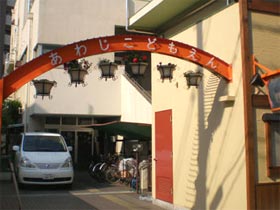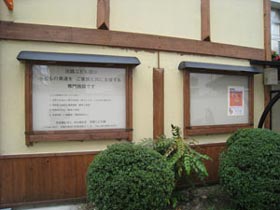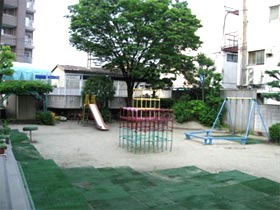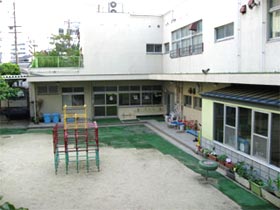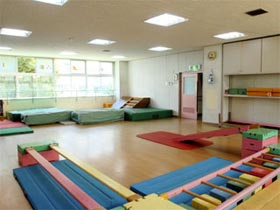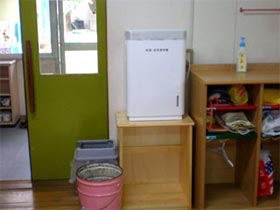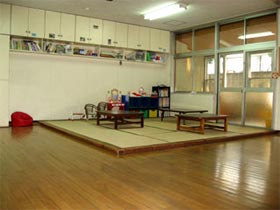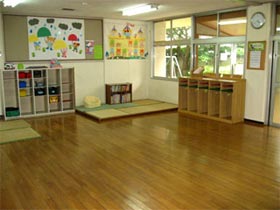@First, even though a child is underdeveloped or has intellectual disabilities,
with appropriate support for the child and his/her family, the child can
develop in a healthy manner.
@Second, in our center, childcare, social welfare, psychology, and medical care specialists work together in order to address the difficulties of raising, relating to, and communicating with children, and not being able to predict how the child will develop.
@Third, rather than working with children only in a nursery-school setting,
we also pay attention to the daily lives of children outside of the nursery
school in order to help those children develop better communication with
people around them and feel secure.
1DRespecting each child
- We support each child according to his/her stage of
development and disabilities.
- We would like children to have confidence, high self-esteem,
and the ability to communicate their feelings and will, developed through
trust-based relationships with adults close to them.
- Taking a holistic view of children, we support children to grow
up with a balance of communication skills, cognitive ability and interests,
basic living skills, and athletic ability.
- Taking a childfs disability into account and
avoiding judgments of the child based on what he/she can or cannot do, we care
for the child with an eye to the childfs emotional and personal
development.
2DCooperating with the childfs family
- It is very important for us to cooperate with the
childfs family in order to support his/her growth.@Rather than unilaterally
advising or determining goals for a child, we respect parentsf opinions and
consult with them about how to relate to their children and how to create a
comfortable environment for them.
- With the aim of enabling the child to achieve a
harmonious existence as a member of his/her family, we focus on a childfs home
as his/her social foundation and on support for improved relations between the
child and other family members.
- We consult with families about problems and
difficulties they face, we support their efforts to live at ease, and we
encourage them to have an optimistic outlook.
3DIn a long-term perspective
- In order to enjoy a comfortable and lively domestic
and community life, it is important while growing up for each child to develop
trusting relationships with adults close to the child, and that those
relationships serve as support for the childfs own spontaneous
interests.
- We encourage parents to view the child within the
larger context of the childfs lifecycle so that the parents donft get overly
frustrated with problems they face at specific stages of their childfs life.
Furthermore, even after the child graduates we continue to consult with those
parents who seek our advice and navigate. the system for them
|
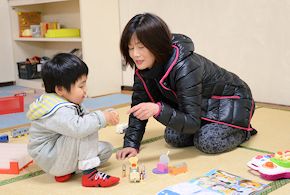 Naomi Tashiro
Naomi Tashiro 